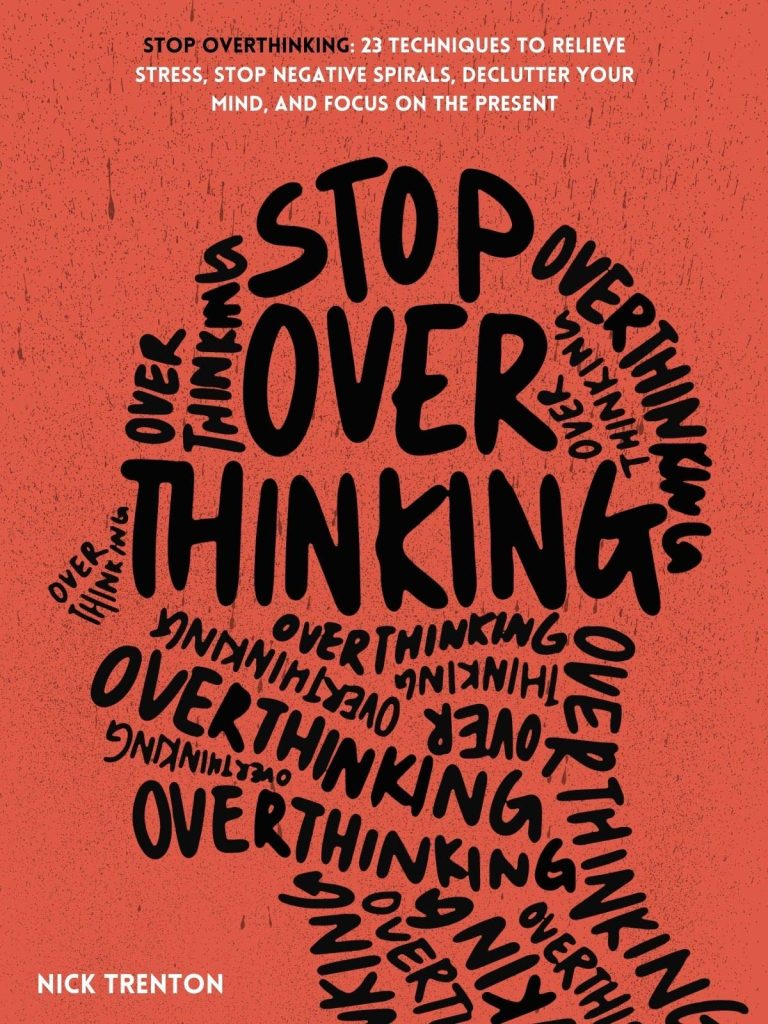Title: Stop Overthinking: 23 Techniques to Relieve Stress, Stop Negative Spirals, Declutter Your Mind, and Focus on the Present
Author: Nick Trenton
Published March 1, 2021
191 pages, Kindle Edition
Rating: 3.82
Overview
Are you tired of feeling overwhelmed and stuck in negative thought patterns? Look no further than Stop Overthinking by Nick Trenton.
With 23 proven techniques, this book will help you relieve stress, declutter your mind, and focus on the present. Trenton’s approachable writing style and practical tips make this a must-read for anyone looking to break free from the cycle of overthinking.
Whether you struggle with anxiety or simply want to improve your mental wellbeing, Stop Overthinking provides the tools you need to live a more peaceful and fulfilling life.
Editoral Review
Stop Overthinking: 23 Techniques to Relieve Stress, Stop Negative Spirals, Declutter Your Mind, and Focus on the Present by Nick Trenton is a self-help book that provides practical tips to help readers overcome the debilitating habit of overthinking. Published on March 1, 2021, the book has quickly gained popularity among readers struggling with anxiety and stress.
The author, Nick Trenton, is an expert in behavioral psychology and has helped numerous individuals overcome their negative patterns of thinking. His book offers a comprehensive guide to help readers develop healthier habits to reduce stress and anxiety.
In Stop Overthinking, Trenton presents a compilation of 23 unique strategies to manage overthinking. Some of these strategies include mindfulness, visualization, and cognitive restructuring.
The author presents each strategy in a clear and concise way, making them easy to understand and apply. Trenton’s writing is engaging, and he provides practical examples to help readers understand each strategy.
The book is well-structured, with each chapter focusing on a specific technique to manage overthinking. The inclusion of exercises at the end of each chapter helps readers to practice and cement the concepts they have learned.
One of the strengths of Stop Overthinking is the author’s emphasis on mindfulness. Trenton skillfully incorporates the practice of mindfulness throughout the book, demonstrating how it can be a powerful tool for combating overthinking.
Additionally, his explanation of cognitive restructuring is comprehensive and well-presented. These techniques are backed by empirical research, and Trenton provides specific examples of how they have helped individuals.
In terms of weaknesses, some readers may find the book too simplistic. While the strategies provided are effective, they may not address complex issues related to overthinking.
Additionally, some readers may find the exercises repetitive or overly simplistic. Overall, Stop Overthinking is an excellent resource for individuals looking to develop healthier habits to manage their overthinking.
Trenton’s writing is engaging, and the strategies provided are well-researched and easily applicable. Readers struggling with anxiety, stress, or overthinking will find this book helpful.
As a self-help book, Stop Overthinking is limited in its scope. However, the strategies provided have been proven effective, and the inclusion of mindfulness throughout the book is a strength.
We recommend this book to anyone looking to improve their mental health and manage their overthinking. Rating: 4/5



